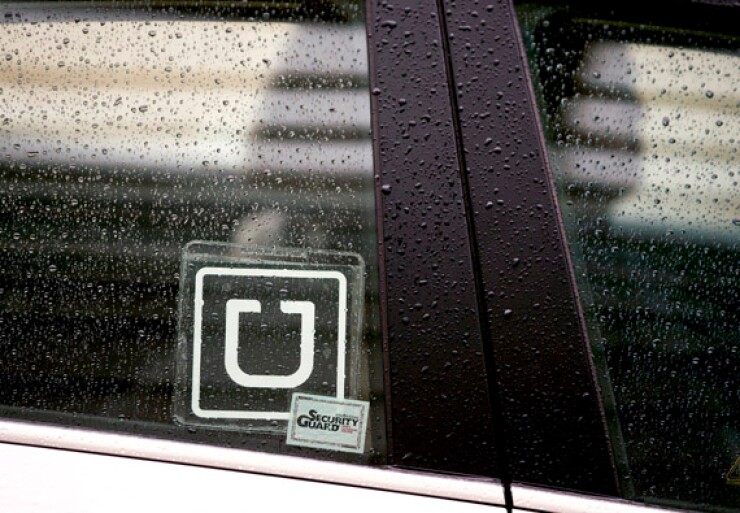(Bloomberg) — The U.S. labor-protection watchdog is taking sides with Uber Technologies Inc. drivers in their fight to be treated better than independent contractors.
As part of a broader review of how gig-economy companies treat workers, the National Labor Relations Board wants a federal appeals court to consider its view before reaching a decision that could eviscerate a class-action lawsuit on behalf of hundreds of thousands of drivers seeking to secure the protections and benefits of employees.

The NLRB told the court it would file its arguments Wednesday questioning whether Uber’s contracts illegally block drivers from joining class-action lawsuits. Unless they opt out of the standard contract, which few do, drivers are required to resolve disputes with the company in private arbitration, where the company can fight them one-on-one.
The issue is one of “national significance” because it affects so many cases across the country, the NLRB told the U.S. Court of Appeals in San Francisco.
The court “has already held that our arbitration agreements are enforceable and do not violate” the National Labor Relations Act, Uber spokesman Matt Kallman said in an e-mail.
The drivers’ lawyer, Shannon Liss-Riordan, said it’s rare for the NLRB to intervene this way, which shows the agency “sees this case as raising a significant issue.” The NLRB declined to comment.
The lawsuit on behalf of 385,000 current and former drivers in California and Massachusetts is considered the most significant legal threat in the U.S. to the business model used by Uber, and most sharing-economy companies. That model saddles drivers with expenses, such as car mileage and maintenance, while the company saves money by avoiding the cost of benefits including sick leave and health insurance.
The Uber case has been in limbo since September. Just weeks after a lower-court judge rejected a $100 million offer to settle the drivers’ case, the San Francisco appeals court ruled in a different case that Uber’s arbitration agreements are largely valid and enforceable. That gave the company leverage to hold out for an even more favorable deal.
The drivers are now trying to convince the appeals court that the arbitration provision waiving their right to pursue class actions violates the National Labor Relations Act -- the law the NLRB is charged with enforcing to investigate worker complaints and adjudicate disputes with management. If the court agrees, that may swing the advantage back to the drivers as the case eventually heads toward trial.
No U.S. court has determined that sharing-economy workers are entitled to employee status, although some state labor agencies have.
Airbnb’s arbitration agreement for users upheld
Separately, the NLRB is investigating claims by Uber drivers that the company has violated their rights to collective actions. The agency must first determine they’re employees before pursuing remedies. Uber can challenge its findings in court.
The NLRB has a “good shot” at convincing the court that including an opt-out provision in an arbitration agreement doesn’t allow a company to stop workers from pursuing class actions, said Charlotte Garden, a Seattle University associate law professor who has followed the Uber case.
Citing another case in which a court concluded workers could band together to argue employers violated the law, “it is not much of a further stretch to hold that employees can’t be asked to give up that right before a dispute arises,” she said.
The appeals court case is O’Connor v. Uber Technologies Inc., 15-17420, U.S. Circuit Court of Appeals for the Ninth Circuit (San Francisco). The lower-court case is O’Connor v. Uber Technologies Inc., 13-cv-03826, U.S. District Court, Northern District of California (San Francisco).





